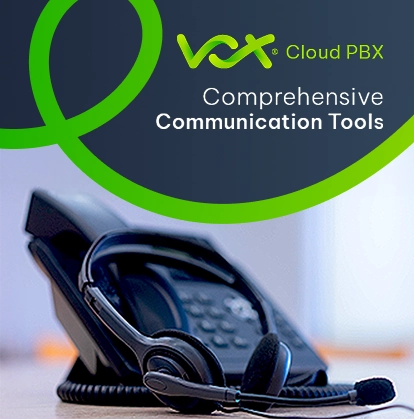Successful businesses, both big and small, need to have an online presence 24/7. That’s where Web Hosting comes in.
So, What Is Web Hosting?
Web Hosting involves storing your website files and content on servers connected to the Internet to ensure the website is always available and accessible on any browser. Essentially, Web Hosting acts as a bridge between a website’s content and its users, allowing for a seamless exchange of information between both parties for goods and services. There’s no point in having an incredible website if it loads too slowly – or worse – not at all.
Sounds Important, Right? That’s Because It Is
Here are a few more reasons Web Hosting is essential for business:
- It Creates Online Presence: This is essential for businesses to expand their reach and find new customers.
- It Enables Accessibility: Thanks to Web Hosting, sites are accessible 24/7 from anywhere in the world, allowing businesses to share their products with a global audience in any time zone.
- It Offers Reliability: A good provider ensures the website is up and running with minimal downtime, providing a positive user experience, and preventing loss of traffic and revenue.
- It Enhances Security: This includes everything from backups to firewalls and anti-virus protection to ensure websites are secure and protected from cyber threats.
- It Provides Scalability: As businesses grow and evolve, they need more resources online to meet demand. A good provider offers scalable options to accommodate the changing needs of the website.
- It’s Cost-Effective: When compared to setting up and maintaining an in-house server, Web Hosting is the easily accessible, scalable, and budget-friendly choice. One that also comes with built-in support.
When it Comes to Web Hosting, You’ve Got Options
- Shared Hosting is a cost-effective web hosting solution where multiple websites share the same server resources such as disk space, bandwidth, and processing power. This makes it an ideal option for small businesses and personal websites with low traffic and limited resource needs. However, Shared Hosting can lead to slower website speeds and increased downtime if one of the websites on the server experiences a surge in traffic.
- VPS (Virtual Private Server) Hosting provides a higher level of resource allocation compared to shared hosting. Each website has its own virtual server with dedicated resources, providing more control and flexibility, as well as improved website performance and security. VPS Hosting is ideal for growing businesses and websites with moderate to high traffic and resource needs.
- Dedicated Hosting is a premium solution where a single client leases an entire physical server, with all its resources dedicated solely to their website. This offers the highest level of performance, security, and control, making it ideal for large businesses, e-commerce sites, and websites with high traffic and resource demands.
- Cloud Hosting uses a network of remote servers connected to the Internet to store, manage, and process data, rather than relying on a single physical server. This offers scalability, reliability, and cost-effectiveness as websites can draw resources from the cloud as needed. Cloud Hosting is ideal for businesses and websites with fluctuating traffic and resource needs, as well as those requiring high availability and performance.
There Are a Few More Things to Keep in Mind
Let’s start with cost. Web Hosting can range from no fees at all to hundreds of rands per month, depending on the level of resources, performance, and support offered. It’s important to consider your budget and the cost of the service in relation to the resources and performance needed for your site to function optimally.
Then comes storage and bandwidth. Storage refers to the amount of disk space available for your website, while bandwidth refers to the amount of data that can be transmitted from your website to its visitors. When choosing a service, take your storage and bandwidth needs into consideration first, including future growth and the type of content you’ll be hosting.
The reliability and uptime offered is critical, as it affects the availability of your website and its performance. A reliable service should have a high uptime rate, meaning your website is almost always available and accessible to visitors. A service’s uptime guarantees, and past performance records are worth looking into.
Let’s not forget customer support. Technical issues can arise at any time, and you want to make sure you have access to knowledgeable and responsive support to resolve any issues quickly. If your website goes down, you need to know that you can reach out to your hosting provider for help and that you’ll receive quick and effective support. A good hosting service should offer 24/7 support, through multiple channels, such as phone, email, live chat, and support tickets.
The Bottom Line
A great website will help grow your business. As your website attracts more traffic, you may need to upgrade your resources (like bandwidth and storage) as needed without facing downtime, so choose a service that offers that kind of scalability from the start.
When it comes down to it, Web Hosting is the unsung hero of the Internet. The right service provides a stable and secure platform for your website and helps ensure your visitors have a positive experience every time they visit. Factors including reliability, uptime, customer support, scalability, and security will mean the difference between your website’s failure or success.














